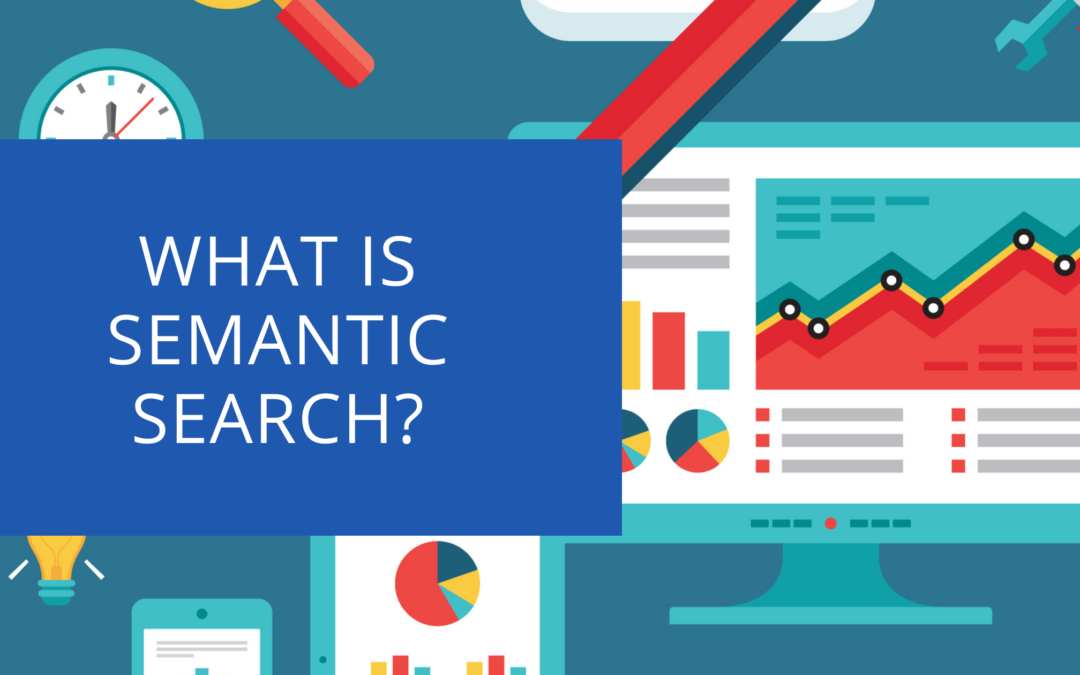Do you ever feel like you’re not getting the most out of your search results? You’re not alone. With so much information at our fingertips, it can be tough to know how to find what we’re looking for.
Semantic search is a relatively new technology that is designed to help us get better search results by understanding the meaning behind the keywords we type in. In this blog post, we will discuss what semantic search is and how it can benefit you!
Contents
What is semantic search and how does it work?
Semantic search is a technology that uses computers to understand the meaning of words and phrases. This understanding allows semantic search engines to return more relevant results. Semantic search algorithms analyse all of the available content on the web – including text, images, and videos – to better understand the topic or subject matter being searched for.
 One way to think about semantic search is as a “smart” search engine. Rather than relying on keywords alone, semantic search takes into account all of the related information surrounding those keywords to provide a more accurate result set.
One way to think about semantic search is as a “smart” search engine. Rather than relying on keywords alone, semantic search takes into account all of the related information surrounding those keywords to provide a more accurate result set.
For example, if you were searching for information about David Beckham, a Semantic search engine would not just look at web pages that contain the word “David” or “Beckham.” It would also look at web pages that contain information about Manchester United, football, and sports in general. This allows semantic search engines to return results that are not only relevant to your original query, but also contextually relevant.
What are the benefits of semantic search for users?
Semantic search is still a relatively new technology, so its full potential has yet to be realised. However, there are already several ways in which semantic search is benefiting users:
- Increased accuracy: As we mentioned earlier, semantic search takes into account all of the related information surrounding your keywords. This helps to ensure that you receive more accurate results than with traditional keyword-based searches.
- Improved relevancy: Semantic search engines understand the meaning behind your keywords, which means they are better able to return relevant results than traditional search engines.
- More comprehensive results: Semantic search algorithms analyse all of the available content on the web, including text, images, and videos. This allows semantic search engines to return more comprehensive results than traditional search engines.
- Greater insight: Semantic search can provide you with greater insight into the topic or subject matter you are searching for. Semantic search engines don’t just return a list of links – they also provide information about each result, helping you to quickly and easily identify the most relevant sources of information.
How can semantic search help your SEO efforts?
Semantic search can help your SEO efforts in a few ways:
First, semantic search can help you to identify new keywords and phrases that you may not have considered before. You can implement these words and phrases into your pages to be incredibly relevant.
 By understanding the meaning behind these keywords, semantic search engines can return more comprehensive results that include relevant terms and phrases.
By understanding the meaning behind these keywords, semantic search engines can return more comprehensive results that include relevant terms and phrases.
Second, semantic search can help you to better understand your target audience. Semantic search engines analyse all of the available content on the web – including text, images, and videos – to better understand who is searching for what information.
This allows you to tailor your content strategy accordingly and ensure that you are providing the most relevant information possible for your target audience.
Third, semantic search can improve click-through rates (CTRs) and organic search results. Semantic search engines return more relevant results than traditional search engines, which can result in increased click-through rates and higher rankings on SERPs.
How can you implement semantic search into your website?
There are a few ways that you can implement semantic search into your website:
You can use Semantic Web technologies such as RDFa or Microdata. These technologies allow you to mark up your content with specific tags that indicate the meaning of the information on your page.
Semantic search engines can then use these tags to better understand the content of your website and return more relevant results.
You can use Natural Language Processing (NLP) services such as Google’s Cloud Platform or IBM’s Watson. These services allow you to process unstructured data – such as text from articles, blog posts, and social media – and extract the meaning behind it.
This allows you to better understand the topic or subject matter being discussed and return more relevant results.
What is the future of semantic search?
The future of semantic search is bright! Semantic search technology is still in its early stages, but it has already shown great potential for improving the accuracy, relevancy, and comprehensiveness of search results.
Semantic search is also becoming more and more important as we move towards a world where most of our data will be unstructured.
By understanding the meaning behind this data, semantic search engines will be able to provide us with valuable insights that traditional search engines cannot.
Semantic Search Algorithms
Google Hummingbird
Google Hummingbird is a Semantic Search algorithm that was introduced in 2013. It is designed to better understand the meaning behind queries, and return more relevant results than traditional search engines.
Google Hummingbird uses a variety of factors to determine the relevance of a query, including:
- The overall context of the query
- The keywords and phrases used in the query
- The location of the user
- The time of day
- Previous searches conducted by the user
RankBrain
 RankBrain is a Semantic Search algorithm that was introduced in 2015. It is designed to better understand the meaning behind queries, and return more relevant results than traditional search engines.
RankBrain is a Semantic Search algorithm that was introduced in 2015. It is designed to better understand the meaning behind queries, and return more relevant results than traditional search engines.
BERT
BERT is a Semantic Search algorithm that was introduced in 2019. It is designed to better understand the meaning behind queries, and return more relevant results than traditional search engines.
Semantic Search FAQ
What is Google’s Knowledge Graph?
Google’s Knowledge Graph is a Semantic Search engine that was introduced in 2012. It allows users to find information about people, places, things, and events by searching for specific keywords or phrases.
Google’s Knowledge Graph uses semantic technology to analyse all of the content on the web and extract the meaning behind it. This allows it to provide users with a wealth of information about specific topics and subjects.
What is Semantic Web technology?
Semantic Web technology is a set of standards and protocols that allow web pages to be marked up with specific tags that indicate the meaning of the information on them. Semantic search engines can then use these tags to better understand the content of a website and return more relevant results.
What is Natural Language Processing (NLP)?
Natural Language Processing (NLP) is the process of understanding natural language text and extracting the meaning behind it. This allows semantic search engines to better understand the topic or subject matter being discussed and return more relevant results.
What is Latent Semantic Indexing (LSI)?
Latent Semantic Indexing (LSI) is a technique used by semantic search engines to identify and extract the related keywords and phrases from a document. This allows them to better understand the content of a website and return more relevant results.
We Offer SEO Services Nationwide
- Chester:https://mediakynect.co.uk/seo-chester/
- Wirral: https://mediakynect.co.uk/seo-wirral/
- Liverpool: https://mediakynect.co.uk/seo-liverpool/
- North Wales: https://mediakynect.co.uk/seo-north-wales/
- Wrexham: https://mediakynect.co.uk/seo-wrexham/
Conclusion
Semantic search is a type of search engine that uses specific tags to indicate the meaning of information on a web page. This allows semantic search engines to better understand the content of a website and return more relevant results.
Semantic search is becoming more and more important as we move towards a world where most of our data will be unstructured.
Semantic search algorithms, such as Google Hummingbird and RankBrain, use semantic technology to analyse all of the content on the web and extract the meaning behind it. This allows them to provide users with valuable insights that traditional search engines cannot.

